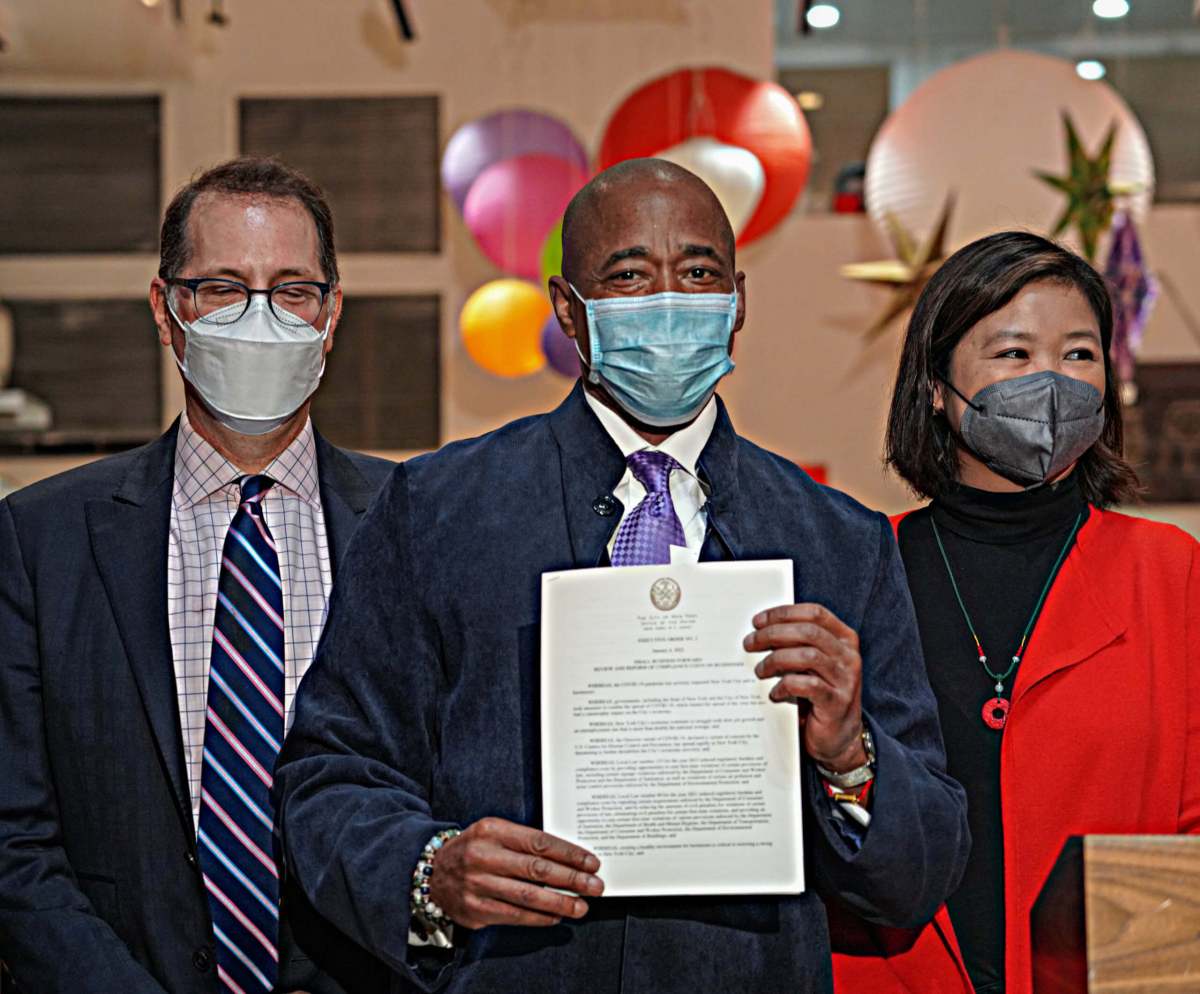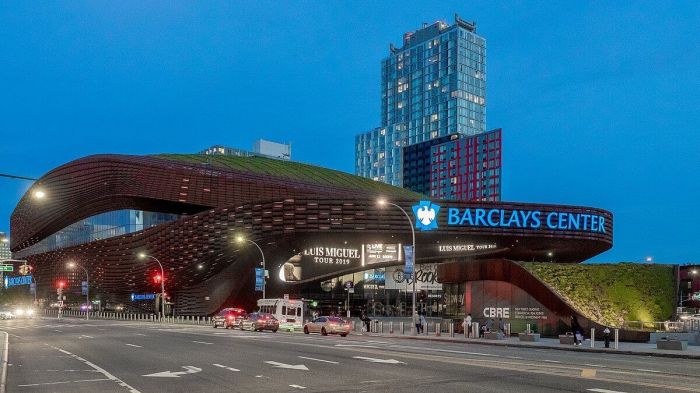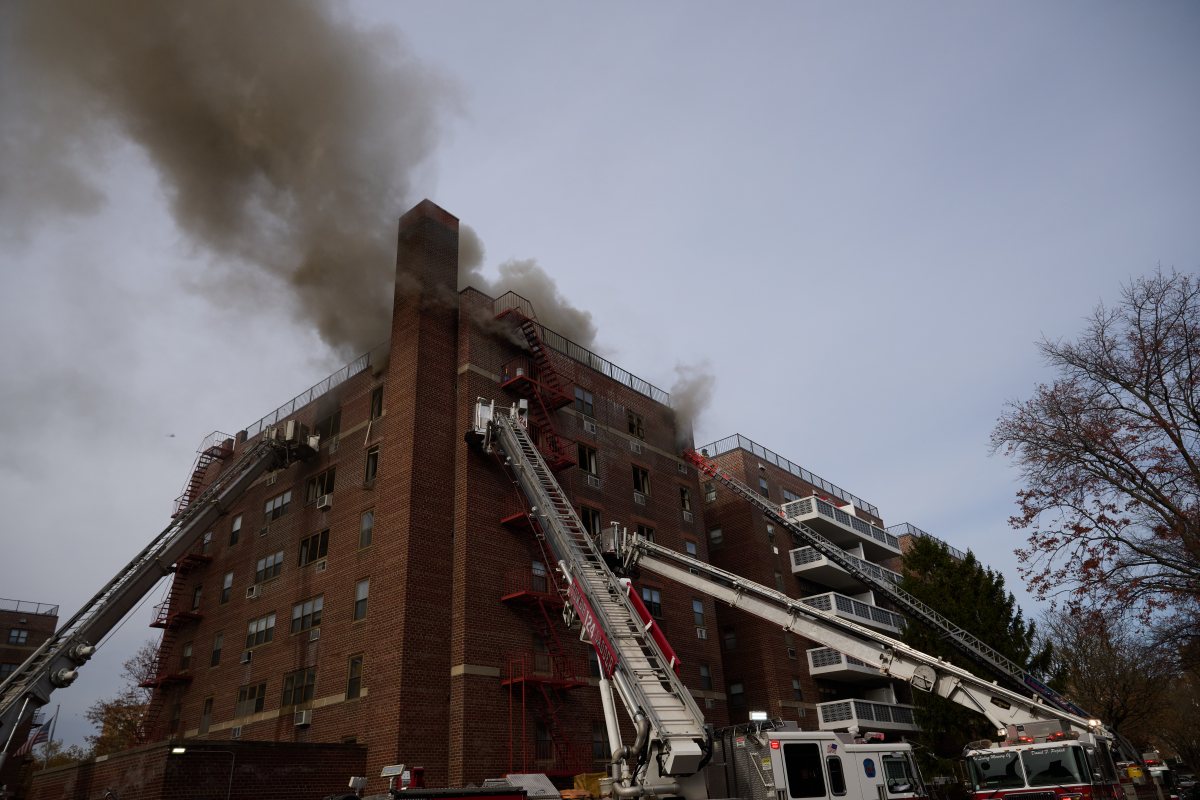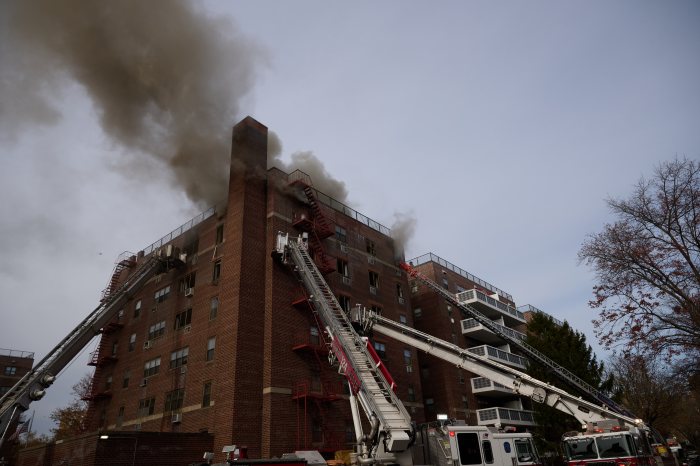On Jan. 4, Mayor Eric Adams signed an executive order to amend violations small businesses face in order to help provide some economic relief with fewer or reduced fines.
The new mayor visited the oldest Chinese-American tourist market in New York on Tuesday, Pearl River Mart at 452 Broadway, where he himself has made purchases in the past. Flanked by Manhattan Borough President Mark Levine and City Councilman Chris Marte, Adams spoke candidly regarding the financial loss AAPI business owners have undergone.
“We know that this city is made up of working people. Everyday people with narratives and stories of coming here as immigrants and opening a small shop or selling something on the streets and then you graduate to open your own small business. Investing all of your money to open a restaurant as a dishwasher, only to have the Department of Buildings take two years to give you a CFO, or National Grid to take another three years to turn on the gas, or Con Edison taking even longer to turn on your electricity, or having agencies walk in and fine first instead of fixing and giving you the support that you deserve. So, Pearl River Mart, we’re going to put you on a new river. A river of hope and prosperity. We’re going to be your partners and not your enemy. This is a landmark Asian American business that’s been a cornerstone of the community,” Adams said.
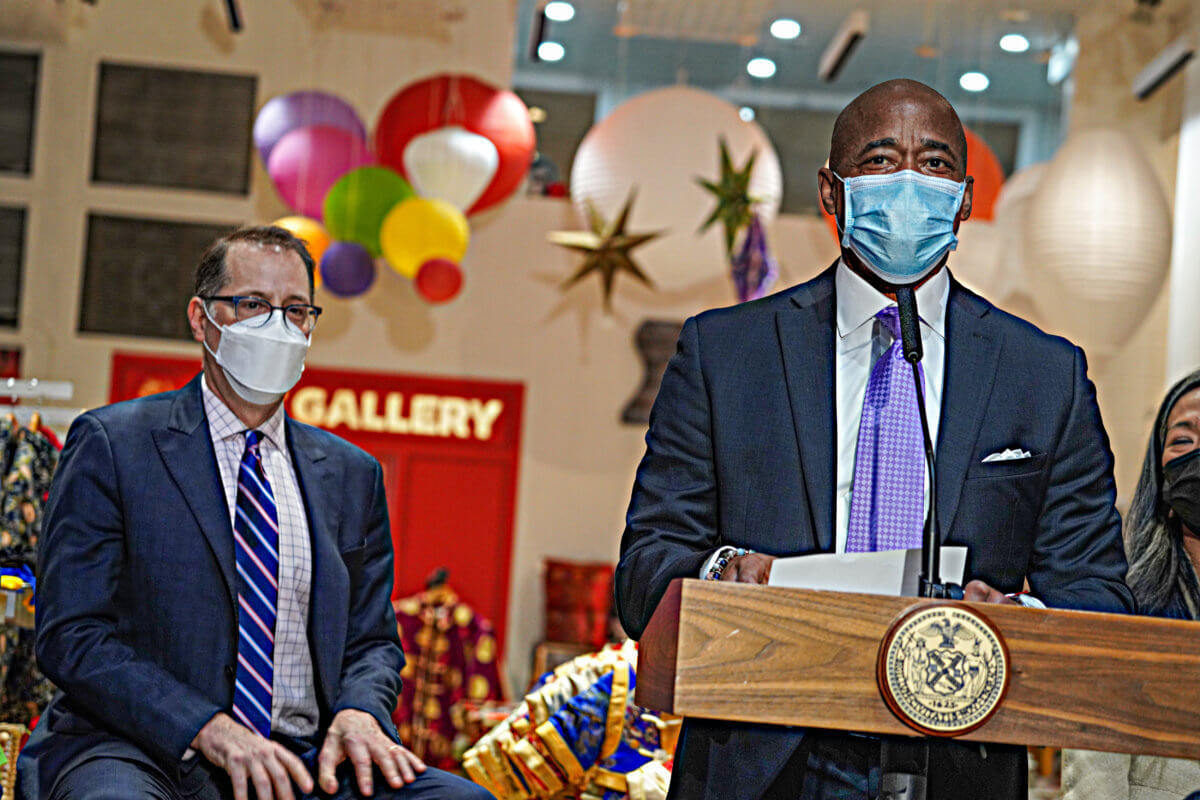
Deputy Mayor for Economic & Workforce Development, Maria Torres-Springer underscored the difficulty of running a small business in the best of times and stated that 98% of New York City’s 230,000 businesses have less than 100 employees. With the economic crisis induced by the COVID-19 pandemic, many of these small businesses have struggled to stay open with a skeletal staff.
“This is changing fundamentally the city’s relationship with small businesses, changing the culture of agencies so that we work harder for small businesses. This is about making sure that we give small businesses the room and the freedom to propel our economic recovery,” Torres-Springer said.
The “Small Business forward” executive order is set to reform small business violations, which would allow for fines to be reduced and even replaced with warnings for those who are first-time violators. With the precarious future of dining, tourism, and overall commerce in the city in dire straits due to the surge in COVID-19 cases, Mayor Adams says he took this step to ensure local businesses do not suffer needless fines and penalties due to small infractions.
“We have used our agencies to turn the American dream into a nightmare. Every day, all day, in the way of small businesses not allowing them to flourish and grow, resenting the fact when an agency walked through the door, not to say we’re here to help, but we’re here to hurt and that has to stop,” Adams said.
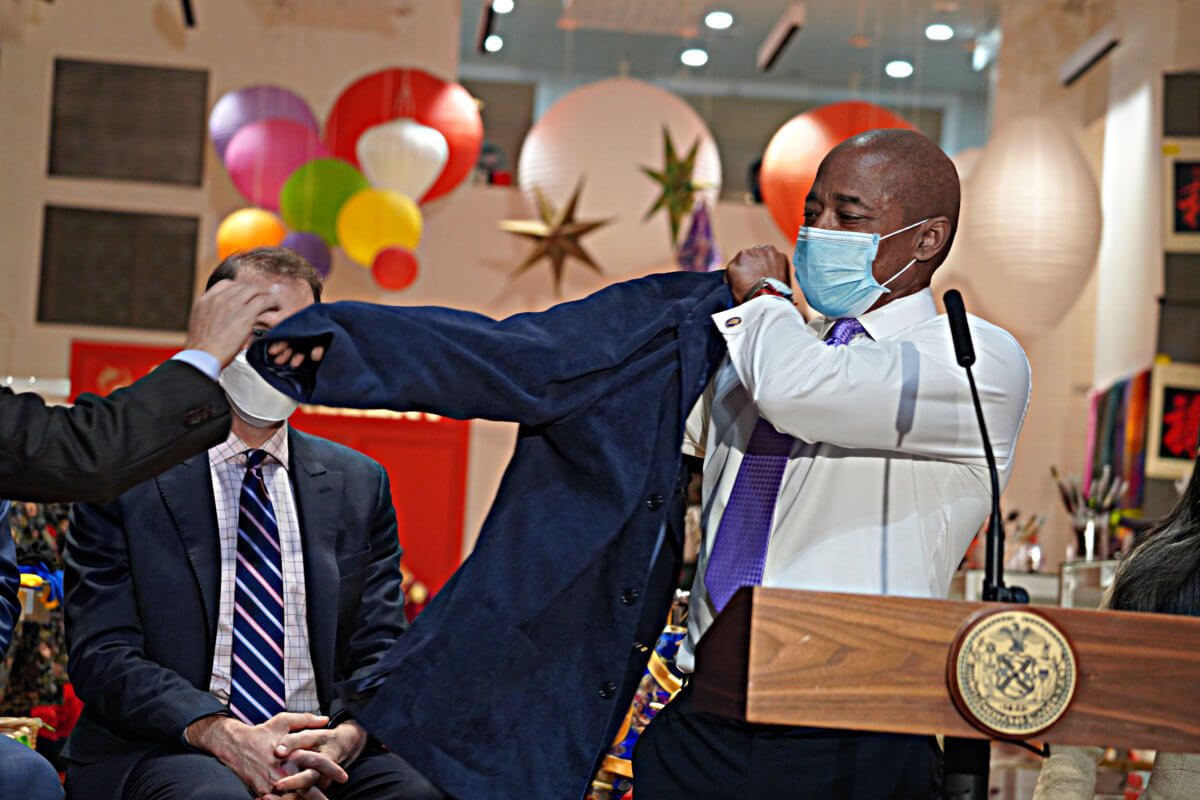
The order takes the existing Local Law 80—an amendment of administrative code of the city that reduces penalties and allows for opportunities to cure violations within a specific time frame—several steps forward by having agencies review and identify 25 health and hygiene violations (over the course of three months) that are responsible for the greatest number of summonses with the Department of Buildings, Department of Environmental Protection, Department of Sanitation, Fire Department, Department of Consumer and Worker Protection, and the Department of Health and Mental Hygiene. Thus, creating an Inter-Agency Working Group, which will be overseen by the Deputy Mayor for Economic and Workforce Development and the SBS Commissioner.
“We want to be here to make sure these businesses grow. They have the hustle; we’re going to give them the flow and allow them to continue to bring commerce to our city. So today, I signed an Executive Order to reform Small Business violations, slash red tape, reduce needless fines and penalties. It will bring relief to our hard-working entrepreneurs,” Adams said.
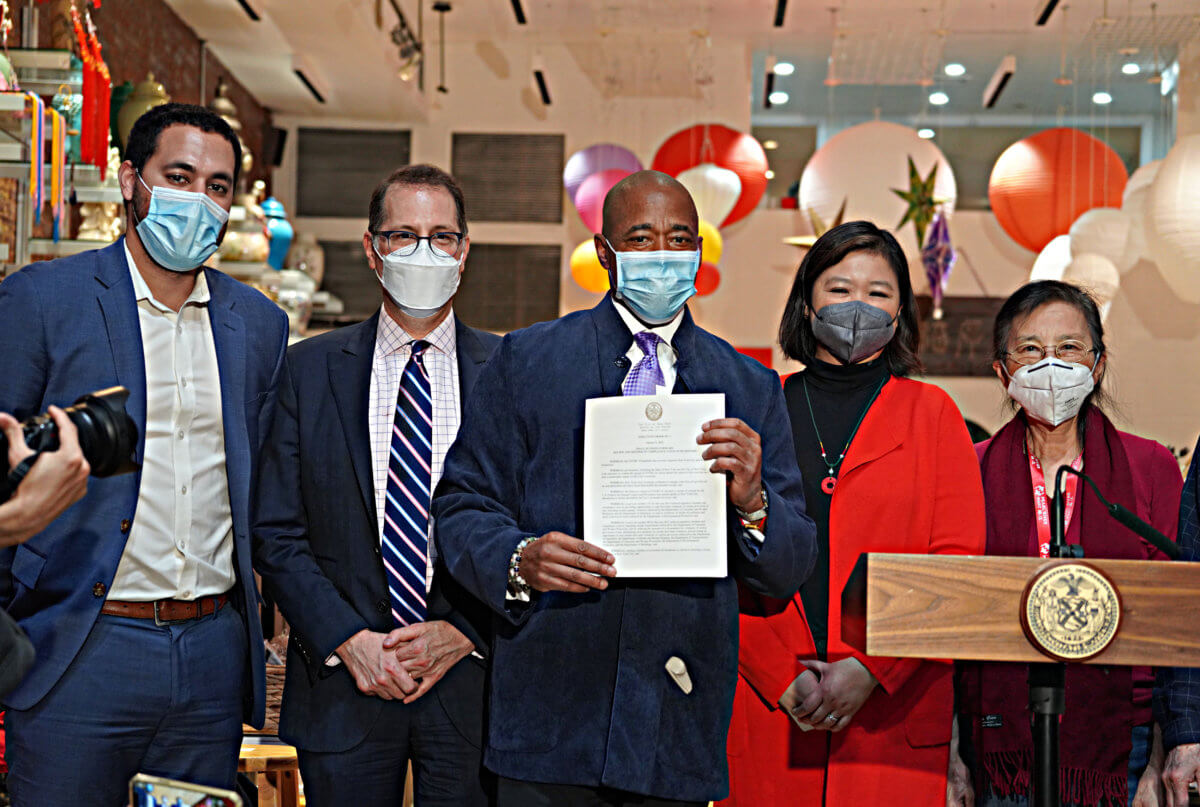
After the agencies make their list of frequent violations, they then recommend which should be reformed, eliminated, have the fine schedules scaled back, allow a first-time warning or determine a time for cure periods (for first-time violations). If no recommendation action is available, then the agency must explain why the status quo must remain. Additionally, these city organizations must supply their suggestions on the ways these violations should be reformed whether through city or state legislation or specific rules to be identified.
The executive order also stresses that once these violations have been identified and amended, enforcement agencies should review and update their tracking system, inspection procedures, training, and more.
“With the goal of encouraging compliance, reducing fine schedules and allowing for cure periods or warnings to approach time violation. You just open a new business, you make a mistake. You should not be hit with a fine that’s going to provent you from keeping your doors open. We’re going to put in a warning system that will allow those businesses to have a period of time for those non-emergency health violations, a period of time to fix the problem. That’s the goal. The goal is not to harm you, but to help you within three months,” Adams said.



